Every Resident Evil game, ranked
The perfect Resident Evil game doesn’t exist.
The series, among the most consequential in gaming, has shifted its focus so often, a “Resident Evil fan” could be many things. One player’s definition of a perfect Resident Evil game is another’s mark of where the series went astray. Like the Zelda or Mario series, Resident Evil is due some credit for innovating and becoming an industry leader, even if it eventually began to borrow from its action-adventure peers.
Still, there are plenty of ideas that persist through each game. Every title sticks to the original’s formula of some kind of item management, exploration and puzzle solving — and, crucially, fighting off zombie hordes. But as you’ll soon see, the series has rarely retained a consistent sense of identity.
The following list is a ranking of how well the games stood the test of time, their impact on the industry, and whether they live up to those three core franchise pillars. Below, we’ll focus exclusively on the main console-focused entries in the series, as the franchise has had dozens of spin offs. We’ll also leave out the “Revelations” spin offs (though they’re both good). The three remakes of the classic games are another story; we count those since they’re both still part of the main series, and different enough to warrant separate entries.
2012
13. Resident Evil 6
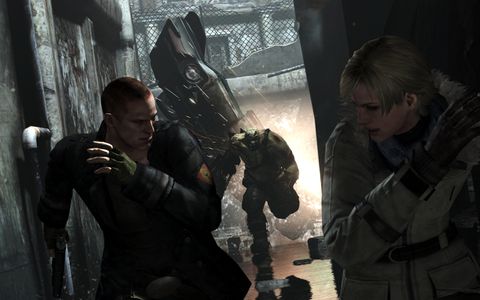 (Capcom)
(Capcom) This placement shouldn’t come as a surprise to anyone who follows the series. It’s the game that took Resident Evil’s cinematic ambitions to farcical, absurd extremes, almost ditching its horror roots in all but name and aesthetics. The game was littered with quick time events, and its denouement included fighting a zombie Tyrannosaurus rex with a Jeep. While it was critically lambasted for its departure from horror, it’s still the best-selling entry in the series.
Still, this title’s low place on the list hurts me. Despite the fact that the game is awful at teaching you its mechanics, it’s a damn fine action game, and a robust evolution of the combat mechanics of “Resident Evil 4,” letting its characters become fully-formed combat experts and zombie martial artists. It was a game so out of character for the series that the team pivoted hard back to horror for the next sequel. For now, the sixth game stands as the popular but maligned adrenaline-fueled outlier of the series.
2002
12. Resident Evil Zero
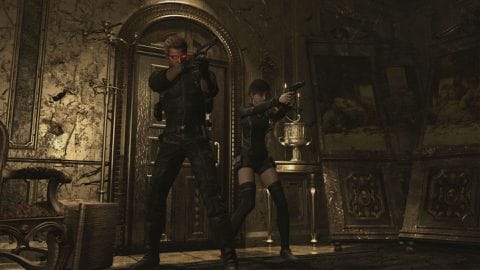 (Capcom)
(Capcom) “Resident Evil Zero” has some of the most memorable locations, and it was a great opportunity to explore another aspect of the inciting incident of the series. But it dropped the ball by giving us ho-hum monsters, a nonsensical story that added little to the lore and a confusing partner setup that was ambitious but ultimately killed the pacing.
This was also a great opportunity to explore Bravo Team, the ill-fated other team from the very first “Resident Evil,” and it drops that ball too. It’s far from bad, and has an excellent grasp of series mechanics, but given how little it contributes to the series, it’s hard to place it any higher.
2020
11. Resident Evil 3 Remake
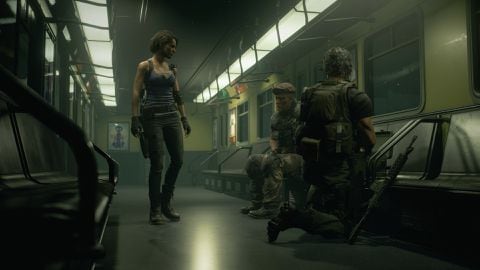 (Capcom)
(Capcom) The remakes of classic Resident Evil titles have mostly been successful — even this one, despite its low placement. “Resident Evil 3 Remake” had the tough trick of updating the earliest series push toward action, while still recalling the classic puzzle-locked progression. This remake leaned more toward the action, chopping out entire sections of the original.
Although Resident Evil games are typically not that long, this was the leanest of all the modern games, and even possibly the classic ones. Perhaps the biggest disappointment is limiting the presence of Nemesis. While he was an unpredictable, ever-present menace in the PlayStation original, Nemesis was mostly used for big battles and action set pieces in the remake.
2000
10. Resident Evil: Code Veronica
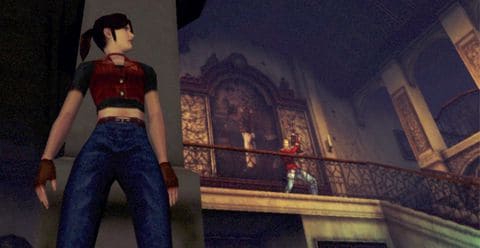 (Capcom)
(Capcom) The series got really weird for its Sega Dreamcast debut. “Code Veronica” is famous for being the actual third game in the series, but planning mishaps gave it a different name. It was the first awkward step into a fully-realized three-dimensional environment, moving away from the gargoyle-like pre-rendered backgrounds of the earlier games.
This is where the Resident Evil lore really goes off the rails. Some elements really work, like the Hitchcock-inspired Ashford twins, among the more memorable series villains. But this game highlighted the frustrations and pitfalls of many series staples, including the awful voice acting, the schlock horror camp, awkward level design, constant backtracking and clunky combat. It was the first big misfire in the series, and as a game, it’s woefully undercooked, but its European opera-house theatrics help it retain a distinct flavor.
2009
9. Resident Evil 5
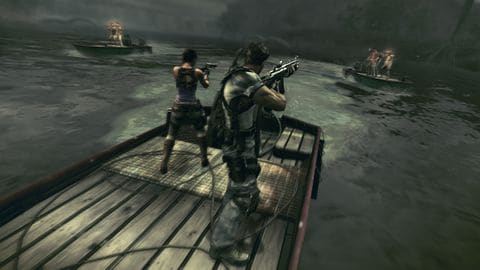 (Capcom)
(Capcom) In this entry, the original hero of the series, Chris Redfield, attains the pinnacle of human evolution, becoming so strong, he could stand inside a volcano and punch a boulder with his bare hands, like some kind of mystical hero in a Jimi Hendrix song.
This was also Capcom’s first attempt at steering the franchise toward multiplayer, which was always going to lower the fear factor. It’s a lot less scary with a friend, and downright frustrating when you don’t have a human partner and have to deal with the shoddy AI of the forced cooperative play. Much of the game’s presentation hasn’t aged well, from the problematic depictions of Africa’s zombies down to the nonsensical writing.
Still, the game goes deep into lore and probably has the most relevant story of the whole series. And even if it’s mostly a continuation of the fourth game’s most action-heavy ideas, it’s one of the most solid horror action titles even today. It’s just not a great Resident Evil game.
1996
8. Resident Evil
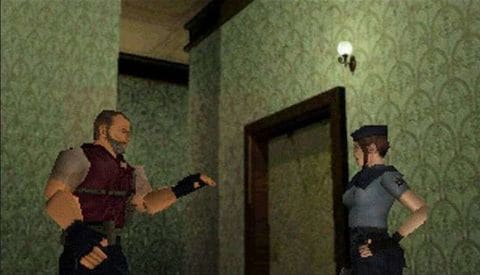 (Capcom)
(Capcom) The first game was eventually outshined by its remake, both of which were directed by series creator Shinji Mikami. Originally planned to be a first-person successor to the 1989 Capcom horror game “Sweet Home,” Mikami switched gears once he discovered “Alone in the Dark.” This inspired the famous “tank controls” and fixed camera angles of the first several games.
Even after “Alone in the Dark,” in 1996 the industry had never seen a horror game like “Resident Evil.” It was moodier, richer in text and the guns felt powerful. This is the game that literally defined the term “survival horror,” just on its introductory text alone.
2021
7. Resident Evil 8: Village
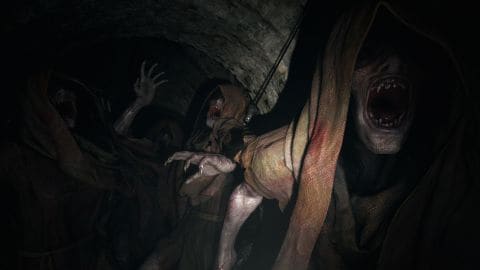 (Capcom)
(Capcom) This entry is so recent, it’s hard to decide where to could place it. For now, it’s easy to say that “Village” is an excellent Resident Evil and survival horror experience, though it apes its best ideas from previous entries. As Phil Hornshaw of GameSpot writes in his review, the game seems to be aware of its history and “is able to summon its best elements at will.” I couldn’t have said it better myself. “Village” makes creating Resident Evil games look easy, all the while containing some element of every facet of the series in its weird, wonderful story.
[‘Resident Evil VIII’ rekindles the illogical, weird magic of the series]
1999
6. Resident Evil 3: Nemesis
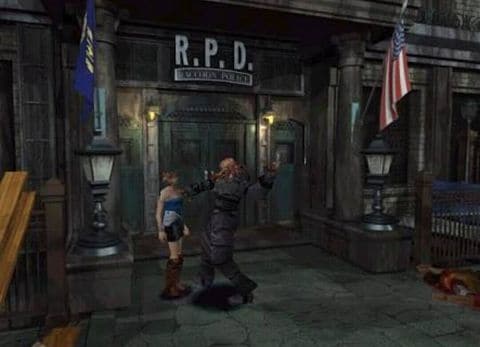 (Capcom)
(Capcom) This is the one instance where the remake failed to live up to the classic. Even though the third game barely breaks any new ground in the story, it’s probably the easiest of the three classic games to return to today. Protagonist Jill Valentine is equipped with more guns than ever, and even comes with a dodge move, which moved the series ever-closer to its eventual evolution into the action genre. “Nemesis” also introduced ammo crafting to the series, which would become a mainstay in many sequels.
While other horror games have played with the idea of the constant “pursuer,” Nemesis would do things we had never seen any other video game monster do, not even in a Resident Evil game. He punched through walls, jumped over scenery, and eventually had his own rocket launcher. Survival horror, and Resident Evil, would never be the same again.
2017
5. Resident Evil 7: Biohazard
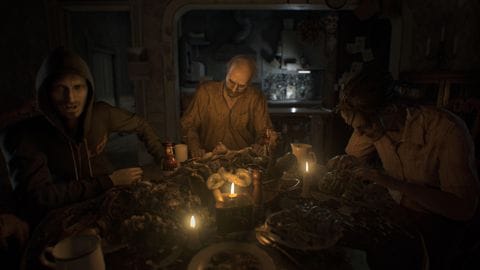 (Capcom)
(Capcom) In 2017, Resident Evil finally implemented the first-person perspective, as it was intended when the franchise was first conceived. It is easily the scariest of the entire series, so much so that it took me years to build up the courage to finally play and finish it in 2021.
Bringing the original’s Japanese title of “Biohazard” as an entire game concept, it’s clear this game was meant as a reset after the mess of “Resident Evil 6.” The game also came after years of survival horror games exploring the first-person perspective. This was Capcom’s flex: we can do it better than anyone, and make it seem effortless. Late-game doldrums and a lack of enemy variety may hold it back from being the best, but if there’s any game that would be best described as digitally induced trauma, it’s “Resident Evil 7.” Dare you to play it in VR.
1998
4. Resident Evil 2
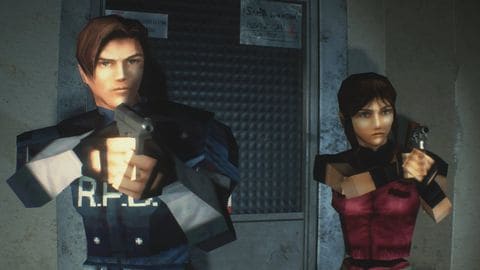 (Capcom)
(Capcom) The first sequel is the “Link to the Past” of the series. It laid the foundation of many series principles, including multiple perspectives, a hard right turn into science fiction storytelling, and the introduction of one, big, persistent monster hounding you throughout the experience. It was directed by Hideki Kamiya, who admitted to disliking horror, and pushed the game to have more zombies, more creatures and more arenas.
Even if it’s a bit rough around the edges to play today, it still does things that modern day Resident Evil games haven’t done. It basically wedged two games into one, giving you two protagonists who go on different paths throughout the world, often times fighting completely different monsters and meeting new characters. Even its excellent 2019 remake couldn’t replicate the divergent storytelling. Being on two separate discs meant there were four different ways to play the game. And even though Nemesis upped the pursuer monster game, Mr. X started the party here. Even if other games did it better, no game does it quite like “Resident Evil 2.”
2002
3. Resident Evil Remake
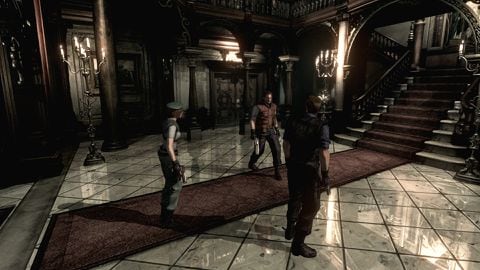 (Capcom)
(Capcom) This is the closest the series ever got to perfecting its original formula. Creator Mikami returned to the series to not only fine tune the original game and give it a complete makeover (one that still looks fantastic by 2021 standards), but to add more story content to steer the game away from its campy PlayStation One roots, and closer to serious survival horror.
The new Lisa Trevor plotline alone is one of the most disturbing stories in survival horror games. It was a masterful slow-burn reveal, a perfect execution of building mystery and dread until you discover the horrible, uncomfortable truth. “REmake,” as it’s affectionately known, is such a perfect distillation of the first game, fans still point to it as the reason the series should return to pre-rendered backgrounds. It’s the perfect classic Resident Evil game, and the one where any new fan should start.
2019
2. Resident Evil 2 Remake
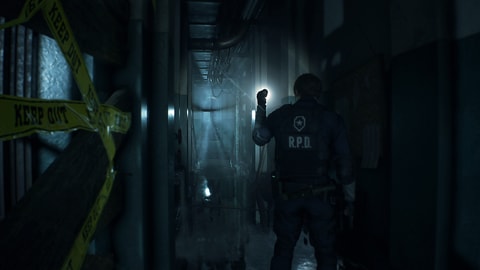 (Capcom)
(Capcom) The series can’t escape the shadow of “Resident Evil 2.” There are countless spinoff games, books, movies and TV episodes that are rooted in the zombie apocalypse of Raccoon City and its eventual nuclear destruction. So it was no surprise when one of the more respected titles in the series received the full-blown remake treatment.
This remake was an exciting evolution to the formula, keeping the gothic horror vibes but finally switching the classic gameplay to the over-the-shoulder, third-person perspective that the fourth game popularized. But the fact that it also kept much of the progression, puzzles and story of the original makes this fusion that much more exciting. Mr. X is reimagined as the best pursuer monster in survival horror history, finally gaining his own artificial intelligence to stomp around the world and hunt you down. This was the perfect fusion of the series’ past and present.
2005
1. Resident Evil 4
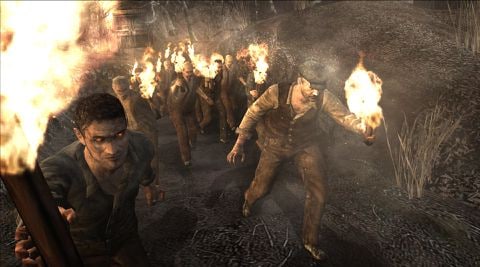 (Capcom)
(Capcom) The perfect Resident Evil game doesn’t exist, and this isn’t even the best survival horror game. But “Resident Evil 4” is a practically perfect video game. British publication Edge Magazine once named it the second greatest video game ever made. It’s the title that popularized the over-the-shoulder camera perspective. All games today that move the camera a little behind and to the right of your player character owe a debt to “Resident Evil 4.”
Beyond the angle, the game raised the bar in action pacing. “Resident Evil 4′s” first five minutes offer one of the most striking first impressions a video game has ever made, mobbing you with angry Spanish villagers, all communicating with each other, wielding tools like pitchforks and chain saws, and opening doors and propping up ladders. The raw confidence in its action systems, enemies and mechanics inspired a generation of action game directors, who would then go on to lead their titles with similarly panicked introductions, like the train wreck of “Uncharted 2.” In “RE4,” you never knew what to expect, and the game never lets off the pedal.
Over time, Resident Evil fans have developed mixed feelings for the fourth game. Many view it as both the savior and the downfall of survival horror games, kick-starting Capcom’s obsession with zombie action over fear. But you can’t blame them for trying to repeat perfection — fruitless as those efforts have been. Capcom, and action games, have chased that “Resident Evil 4” high for more than a decade now. And why not? It’s practically perfect.
Read more:
Every Assassin’s Creed game, ranked






